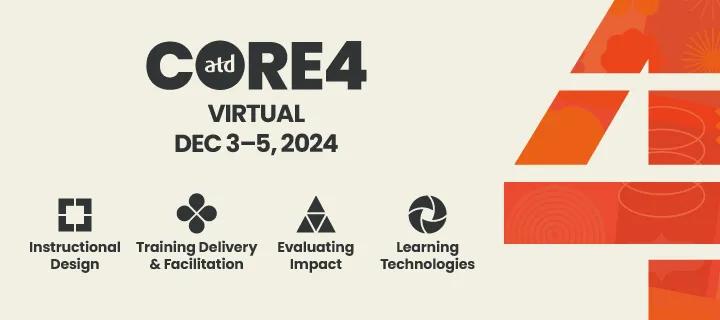ATD Blog
A Training Rap Star Is Born
For roles that rely on quick recall, rap-inspired training strategies help develop immediate cognitive response.
Wed Oct 02 2024

“You’re a rap star.” My wrinkled brow must have indicated surprise since the employee explained, “All your rhymes and songs really help me remember what to do.” Move over Snoop Dogg and 50 Cent, I just received the best compliment ever.
As a patient access training specialist, I prepare contact center agents to schedule and register doctor visits and outpatient tests. Their role requires both high-level and back-pocket knowledge. Agents have no time to digest lengthy, on-the-job resources while assisting patients. Many times, they rely on quick recall. Rap-inspired training strategies help develop that immediate cognitive response.
To reinforce an important topic like telephone encounters, I create a song. Encounters are specialized messages that have four critical components. If an agent skips a section, this omission delays patient care, so the stakes are high. To emphasize these four parts, I transform the Village People song, “YMCA” to “IRFR”—Incoming Call, Reason for Call, Front Office Message, and Routing. After I begin as lead vocal, almost everyone joins the chorus. Some even try incorporating hand gestures. For repetition, I sporadically ask if anyone remembers the four sections of a telephone encounter, and routinely, new agents belt out the song rather than deliver a conversational reply.
The agents’ harmonious response aligns with neuroscience. “Music and memory have a deep-seated connection. Songs and melodies can serve as auditory Post-it notes, helping us remember significant events or information.” In addition, “two recent studies—one in the United States and the other in Japan—found that music doesn’t just help us retrieve stored memories, it also helps us lay down new ones.”
Besides singing, I rely on the occasional rhyme. Rhymes serve as mnemonic devices because “they use acoustic coding (a catchy way) to make concepts easier to remember.” An entire generation can recall, “Plop, Plop, Fizz, Fizz, Oh, What a Relief It is!” Along similar lines, during agent training, I stretch out “s-c-h-e-d /r-e-g flow,” emphasizing the two major job functions, scheduling and registering. Then, I loudly prompt, “If you sched it, you must (long pause).” The entire group shouts, “Reg it!”
Both singing and rhyming spark engagement while solidifying training points, but not everyone enjoys rap. Knowing your audience is key. However, no one wants to be bored either. Taking an occasional risk encourages learners to do the same, earning trust. Even if you skip the song and the rhyme, make content memorable, delivering with the same energy as a rap star. Strike a chord with learners, so they remember key training points on the job. Have the courage to rap when building rapport.
Further Reading
“How Music Affects Memory and Concentration” by Levine Music
“4 Types of Mnemonic Devices and How to Use Them” by M. Drumm (TCK Publishing.com)
“Unlocking the Power of Music and AI for Better Learning” by Margie Meacham
“Strategic Use of Music to Support Learning” by Margie Meacham
Additional Resources
You've Reached ATD Member-only Content
Become an ATD member to continue
Already a member?Sign In

